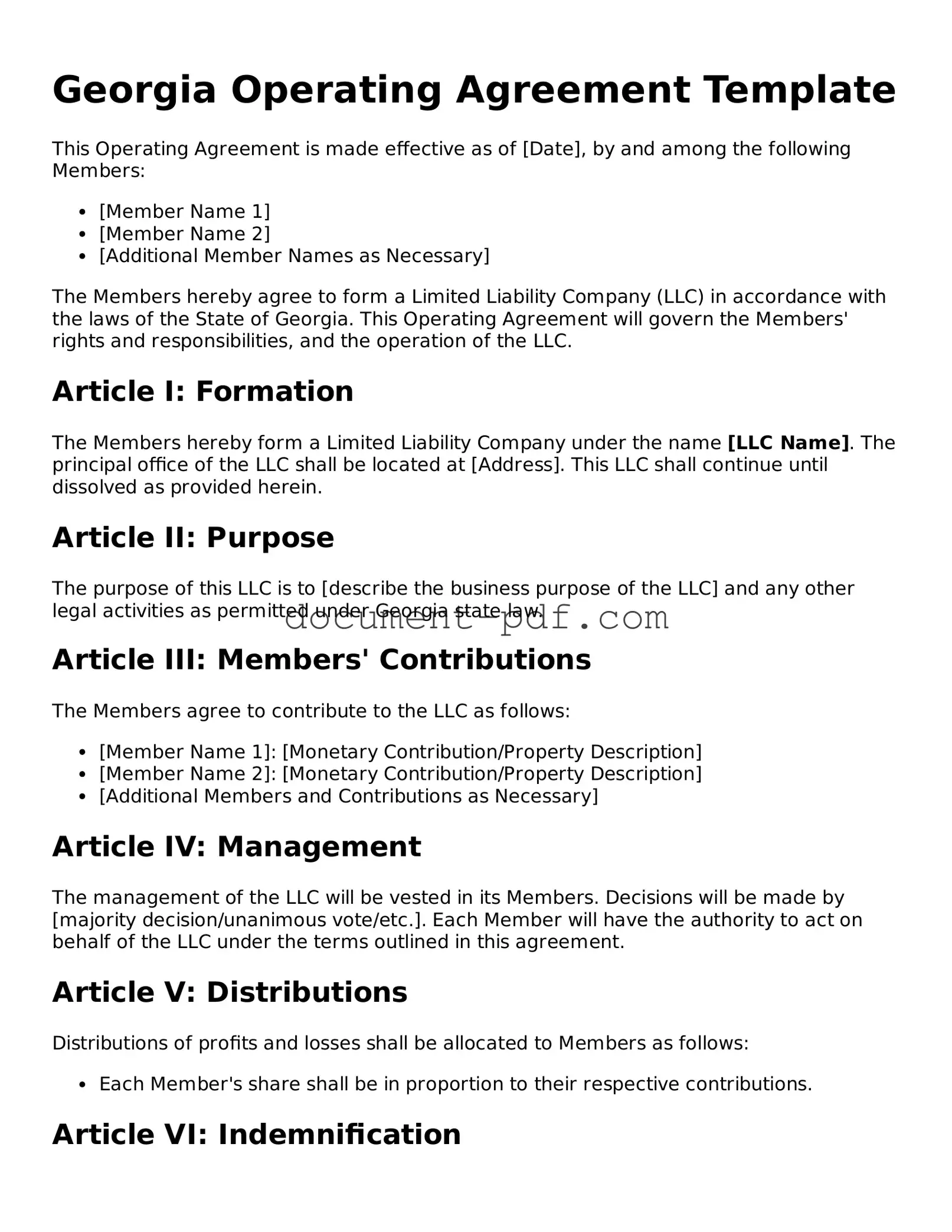Georgia Operating Agreement Template
This Operating Agreement is made effective as of [Date], by and among the following Members:
- [Member Name 1]
- [Member Name 2]
- [Additional Member Names as Necessary]
The Members hereby agree to form a Limited Liability Company (LLC) in accordance with the laws of the State of Georgia. This Operating Agreement will govern the Members' rights and responsibilities, and the operation of the LLC.
Article I: Formation
The Members hereby form a Limited Liability Company under the name [LLC Name]. The principal office of the LLC shall be located at [Address]. This LLC shall continue until dissolved as provided herein.
Article II: Purpose
The purpose of this LLC is to [describe the business purpose of the LLC] and any other legal activities as permitted under Georgia state law.
Article III: Members' Contributions
The Members agree to contribute to the LLC as follows:
- [Member Name 1]: [Monetary Contribution/Property Description]
- [Member Name 2]: [Monetary Contribution/Property Description]
- [Additional Members and Contributions as Necessary]
Article IV: Management
The management of the LLC will be vested in its Members. Decisions will be made by [majority decision/unanimous vote/etc.]. Each Member will have the authority to act on behalf of the LLC under the terms outlined in this agreement.
Article V: Distributions
Distributions of profits and losses shall be allocated to Members as follows:
- Each Member's share shall be in proportion to their respective contributions.
Article VI: Indemnification
The LLC shall indemnify its Members to the fullest extent permitted by Georgia law for any losses or liabilities incurred in connection with the LLC's business.
Article VII: Amendments
This Operating Agreement may be amended only by a written agreement signed by all Members.
Article VIII: Governing Law
This Agreement shall be governed by the laws of the State of Georgia.
Signatures
By signing below, the Members agree to the terms outlined in this Operating Agreement.
- [Member Name 1] ______________________ Date: ___________
- [Member Name 2] ______________________ Date: ___________
- [Additional Member Names and Signatures as Necessary]
This template is designed to be a simple yet effective framework for drafting an Operating Agreement specific to the state of Georgia. Each section addresses critical aspects of an LLC's operation, ensuring clarity among all members involved. Feel free to fill in the blanks with the appropriate information.

